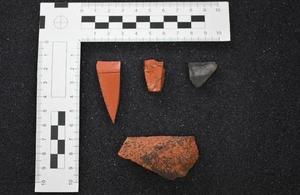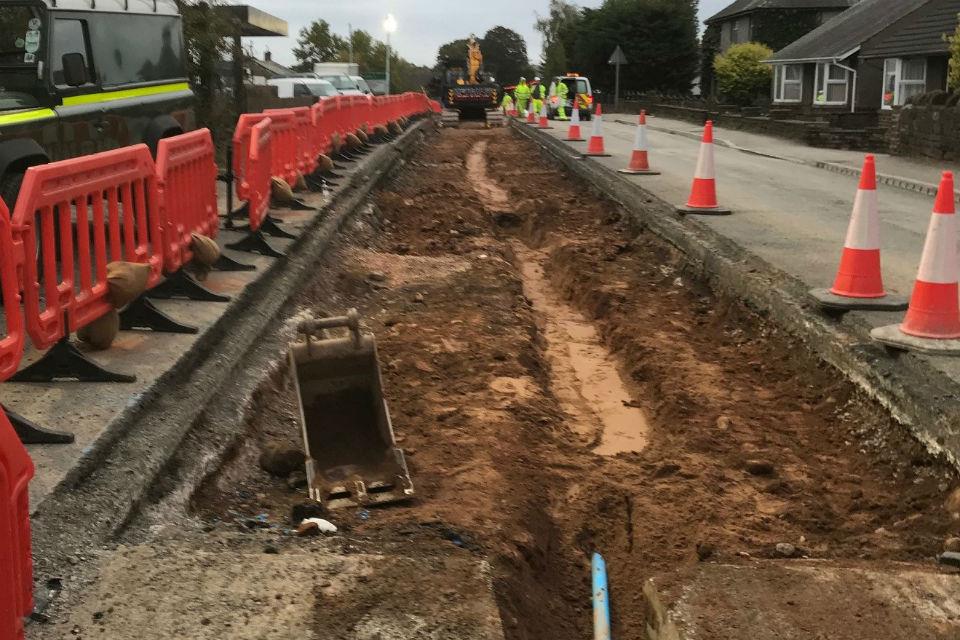Roman settlement discovered during A66 Eden Valley works
Our £5 million improvements project has uncovered Roman remains near Kirkby Thore in Cumbria.

As well as foundations of the original Roman road, traces of Roman life – and death – have been identified at the site, where we’re carrying out major carriageway reconstruction and resurfacing. Pottery, post-holes for timber housing and a Roman grave have all been discovered in the past few weeks.
Project manager Steve Mason said:
As we’re essentially replacing the ancient foundations of the A66 between Low Moor and Kirkby Thore we realised before starting the work that we might come across Roman remains.
We’ve worked very closely with archaeologists for several months and it’s been very interesting to see what kind of things are turning up. It has added a bit more complexity to planning and delivering the improvements, but we’ve been determined from the outset to ensure that what we find on site is treated seriously and sensitively.
We’ve been working alongside GUARD Archaeology Ltd and Amey Consulting on the archaeological aspects of the A66 improvements.
The route of the modern A66 roughly follows an important Roman road which linked the Roman forts and settlements of Cumbria with the Roman forts and settlements of North Yorkshire, passing by through the vicus (or village) that lay just outside the Roman Fort of Bravoniacum, which lies below modern-day Kirkby Thore.
GUARD excavation director John-James Atkinson said:
Not only have we revealed the foundations of the Roman road but we have revealed traces of timber buildings that lay adjacent to the Roman road to the south-west of the fort. While the timber has long since rotted away, the construction of these buildings has left post-holes and pits from which we have recovered a variety of Roman pottery sherds.
The sherds include Samian pottery from Roman Gaul which was once used as fine tableware for rich and well-connected soldiers and citizens, amphorae which may have once held wine or olive oil from the Mediterranean as well as more common greyware and coarse ware that was made in Roman Britain itself.

A Roman grave was discovered as road workers laid a new water pipe near houses west of Main Street at Kirkby Thore.
We’re delivering the biggest roads investment in a generation and are committed to conserving and where possible enhancing the historic environment.
In the context of a carriageway reconstruction project that means allowing archaeological excavations to ensure any significant remains that lie along the route can be recorded and preserved for this and future generations.
Ahead of starting work on any new road or major upgrade, we’re required by law to agree plans for how a scheme will deal with the effects it will have on its immediate environment, including local communities, wildlife and plants, and also any archaeological finds that may be found.
More information about the A66 discoveries is available from the GUARD website.
More information on the project, including diversion details, is available on the A66 Eden Valley road project webpage.
General enquiries
Members of the public should contact the Highways England customer contact centre on 0300 123 5000.
Media enquiries
Journalists should contact the Highways England press office on 0844 693 1448 and use the menu to speak to the most appropriate press officer.